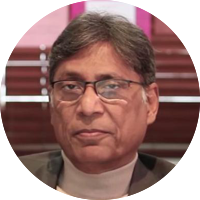Suleiman (Solomon)
Suleiman, also known as Solomon in the Biblical narrative, was the great grandson of Yaqub (Jacob) and son of Dawood (David). He had inherited the throne after the death of his father and became the third King of Israel. He was a messenger of God and was also endowed with the power to speak with animals, control the wind and command jinns. The jinns helped him locate copper and big mines which could be used for storing weapons. Prophet Suleiman prayed for a Kingdom greater than anyone else’s and God answered his prayer. So, he had a grand palace which was unmatched in grandeur and magnificence. He also had a massive army consisting of men, animals, apart from jinns. He often inspected his army for its worth and during one such inspection he found that the bird Hoopoe was missing which had the extraordinary talent to locate the presence of water underground. This angered him badly. Subsequently, the bird arrived with a piece of information that the Kingdom of Saba, also known as Saba (Sheba), was ruled by a Queen called Bilqees who still worshipped the Sun as her god. Suleiman sent an envoy to Bilqees and invited her to accept monotheism. Later, Bilqees visited Suleiman’s palace and was stunned to see its stateliness and splendour, and also how Suleiman ordered his Jinns to get her throne to his palace which they did instantly. This brought Bilqees to her wits end. With this and her interactions with Suleiman, she came to realise that he truly was the messenger of God. This realisation led her to relinquishing the practice of worshipping the Sun as a god and embracing monotheism as her faith. Suleiman is mentioned prominently in a surah (34) of the Quran.
Reference: Usi ke haath mein hai khaatim-e-Sulemani/Nageen dil pe jo naqsh us sanam ka naam kiya (Siraj Aurangabadi), Jabeen meri tarah dagh-e-ghulami/Main us naqsh-e-Sulemani ke sadqe (Qais Kakorvi), Paron se sar pe huma karta tha magas raani/Bajaa us auj pe t ha dawaa-i-Sulemani (Mohammad Ali Tashna), Kuchh kamak chaahi to zambeel-e-hawa khaali mili/Ghatiyon mein kho gaya naqsh-e Sulemani alag (Tafzeel Ahmad), https://www.rekhta.org/ebooks/hazrat-suleman-ebooks?lang=ur
Suleiman, also known as Solomon in the Biblical narrative, was the great grandson of Yaqub (Jacob) and son of Dawood (David). He had inherited the throne after the death of his father and became the third King of Israel. He was a messenger of God and was also endowed with the power to speak with animals, control the wind and command jinns. The jinns helped him locate copper and big mines which could be used for storing weapons. Prophet Suleiman prayed for a Kingdom greater than anyone else’s and God answered his prayer. So, he had a grand palace which was unmatched in grandeur and magnificence. He also had a massive army consisting of men, animals, apart from jinns. He often inspected his army for its worth and during one such inspection he found that the bird Hoopoe was missing which had the extraordinary talent to locate the presence of water underground. This angered him badly. Subsequently, the bird arrived with a piece of information that the Kingdom of Saba, also known as Saba (Sheba), was ruled by a Queen called Bilqees who still worshipped the Sun as her god. Suleiman sent an envoy to Bilqees and invited her to accept monotheism. Later, Bilqees visited Suleiman’s palace and was stunned to see its stateliness and splendour, and also how Suleiman ordered his Jinns to get her throne to his palace which they did instantly. This brought Bilqees to her wits end. With this and her interactions with Suleiman, she came to realise that he truly was the messenger of God. This realisation led her to relinquishing the practice of worshipping the Sun as a god and embracing monotheism as her faith. Suleiman is mentioned prominently in a surah (34) of the Quran.
Reference: Usi ke haath mein hai khaatim-e-Sulemani/Nageen dil pe jo naqsh us sanam ka naam kiya (Siraj Aurangabadi), Jabeen meri tarah dagh-e-ghulami/Main us naqsh-e-Sulemani ke sadqe (Qais Kakorvi), Paron se sar pe huma karta tha magas raani/Bajaa us auj pe t ha dawaa-i-Sulemani (Mohammad Ali Tashna), Kuchh kamak chaahi to zambeel-e-hawa khaali mili/Ghatiyon mein kho gaya naqsh-e Sulemani alag (Tafzeel Ahmad), https://www.rekhta.org/ebooks/hazrat-suleman-ebooks?lang=ur
Additional information available
Click on the INTERESTING button to view additional information associated with this sher.
About this sher
rare Unpublished content
This ghazal contains ashaar not published in the public domain. These are marked by a red line on the left.

